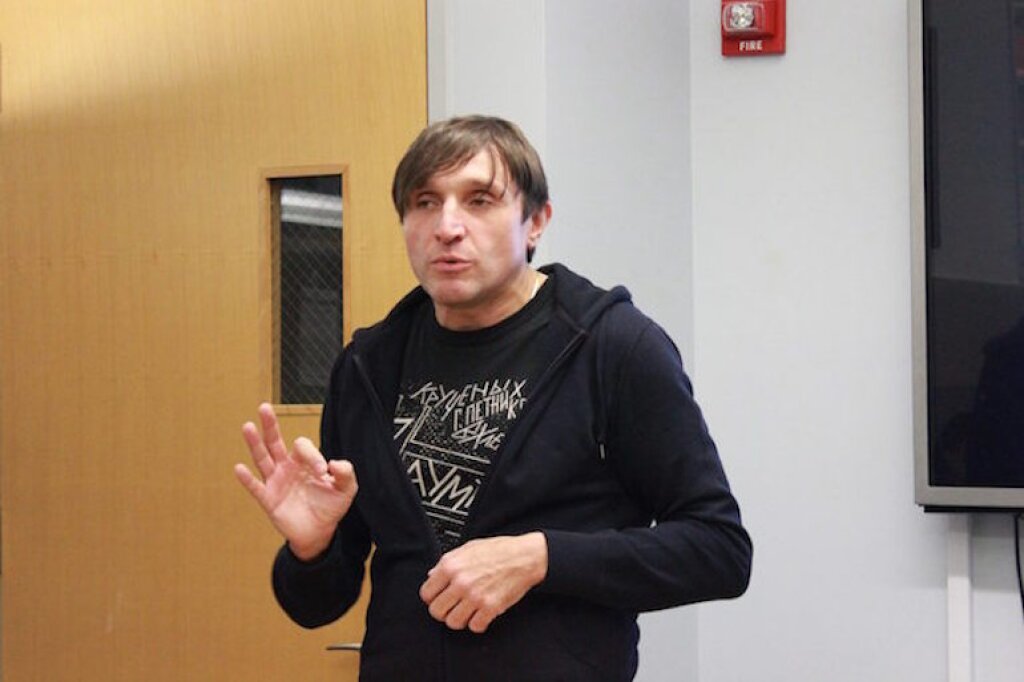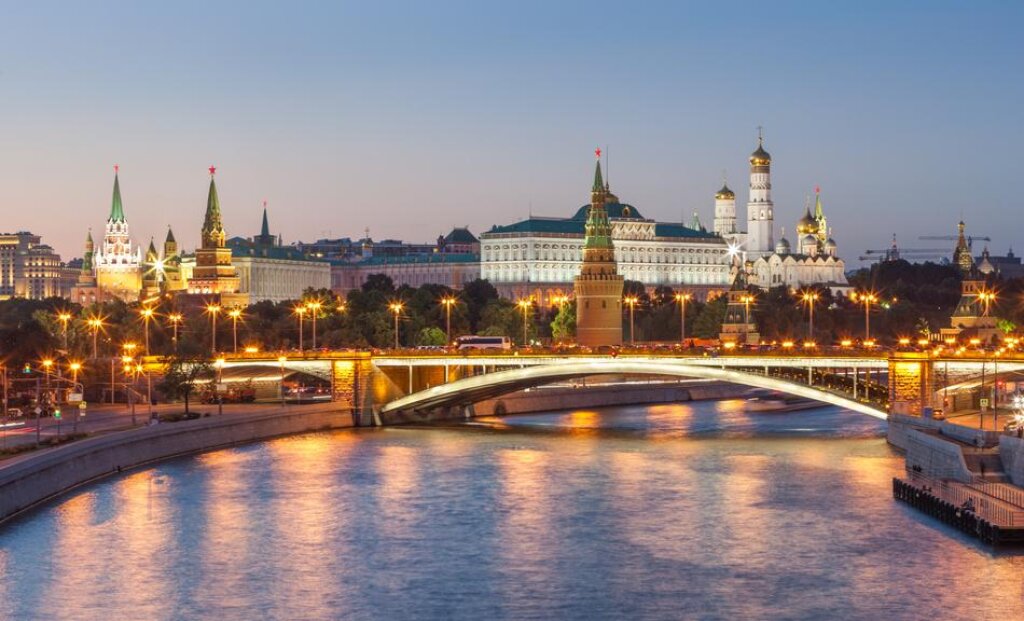Watch the video of the event here
On February 12, 2016, the NYU Jordan Center for the Advanced Study of Russia welcomed Michael (Misha) Danilin from the NYU Department of Russian and Slavic Studies to speak on the “Golden Age of Russian Rock.” Rossen Djagalov, Assistant Professor of Russian and Slavic Studies at NYU, introduced Danilin highlighting his eclecticism and versatility. Apart from being a professor of Russian language at NYU, Danilin is the lead singer of Interzona, the initiator of a number of music projects, and a music expert currently compiling a history of the Russian rock movement. The speaker began his presentation with a plea to the audience, inviting them to think about how to best define Russian rock, what makes it distinguishable from other rock music and other Russian genres, and how we can address Russian rock in the 21st century.
The speaker began the lecture with a brief history of Russian rock. In the 1980s, “Russian-speaking underground musicians viewed themselves as part of global music culture, trying to use whatever limited means that were available to them to plant the seeds of rock n’ roll in [what was] back then virgin soil,” Danilin said.
Russian rock reflected hints of progress already present in the Russian social consciousness and was hugely influenced by the West. The encounter between the Russian word and this Western genre was bound to be explosive. Back in the 1980s, “Rock n’ roll with Russian lyrics was perceived as something almost revolutionary” in the popular culture, vibrant and progressive to some, scary and depraved to others, Danilin said.
Danilin then presented a series of Russian rock bands and their music videos. All of the groups were of the 80s post-punk genre, which Danilin said was “the most current music coinciding with perestroika, glasnost, and all things that brought down the Iron Curtain.” His talk referenced groups from Leningrad, including Alisa, Akvarium, Kino and TELEVIZOR, those from Moscow such as Zvuki Mu, Center, Bravo and Brigada S, and the bands Agatha Cristie and Nautilius Pompilius from Sverdlovsk (now Yekaterinburg).
These bands were the pioneers of rock music in Russia. Boris Grebenshikov, lead singer and founder of the band Akvarium, “was said to [have created] nothing less than a new culture, based on the current world music and literature,” Danilin noted. The song “Hochu peremen!” (I want change!) by Russian band Kino is considered the perestroika anthem. Danilin said that many of the bands hail from Leningrad because of the Leningrad Rock Club, which was the only place in which bands “were allowed to perform without any repercussions” starting in 1981. Even though the club was overseen by the KGB, “[b]y giving a place for musicians to meet, perform and discuss their music, the club provided for an unprecedented amount of creative freedom,” he added. The bands also garnered fans through the dissemination of magnetizdat, recordings of live music performances that were distributed underground as they were unable to be produced by the official (and only) Soviet record company, Melodiya.
Danilin also touched on the political leanings of Russian rockers in the 1980s. One group, Brigada S, is famous for co-organizing the 1989 festival Rock Against Terror, which featured a speech by the lead musician Garik Sukachov in defense of the LGBT community. However, while many bands wrote overtly political lyrics, not all were comfortable with their circulation. After a song by Kino was used in a documentary about the Soviet invasion Afghanistan, the band’s leader Viktor Tsoi “made it a promise not to deal with television ever again,” Danilin said.
Although the West had an enormous influence on rock music in Russia, this process also worked in reverse. In 2013, the American indie rock band The National released a video for the song “Sea of Love,” based on Russian rock band Zvuki Mu’s video “Grubiy Zakat” (“Rough Sunset”) from the 1990s. “The videos are practically identical to the very last detail,” Danilin said. What’s more, following the end of the Soviet Union, some musicians spent time recording music and collaborating on other projects in the US while others, such as Agatha Christie, continue to tour North America.
While many of the bands are still active today, their backdrop has changed dramatically. After the end of the Soviet Union, many bands “effectively [went] back underground after the initial wave of interest towards rock [...] was inevitably washed out by the countless new commercial projects,” Danilin said. And today the political views of various performers have diminished their fan base and celebrity. After publicly shaming Russia’s invasion of Ukraine, Akvarium’s lead singer Boris Grebenshikov was denounced by critics, as “officially dead for his fans,” the speaker noted. Other musicians, once pro-Western, have reversed their stance, including the lead singer of Alisa, Kostya Kinchev, who developed a strong anti-gay, anti-Semitic outlook and Pyotr Mamonov of Zvuki Mu, who converted to Christianity.
In the Q&A session that followed, Djagalov asked Danilin to elaborate on the political conversions that so many Russian rockers experienced after the collapse of the USSR. “In the 1980s, it was not difficult to become a protestor,” Danilin said, but “now the trend has changed. Each of them realize that should they say something opposing the government, they could lose a significant portion of their audience.” In the remaining time, Danilin answered questions about the role that television played in music censorship and about the rock landscape in Russia today.



